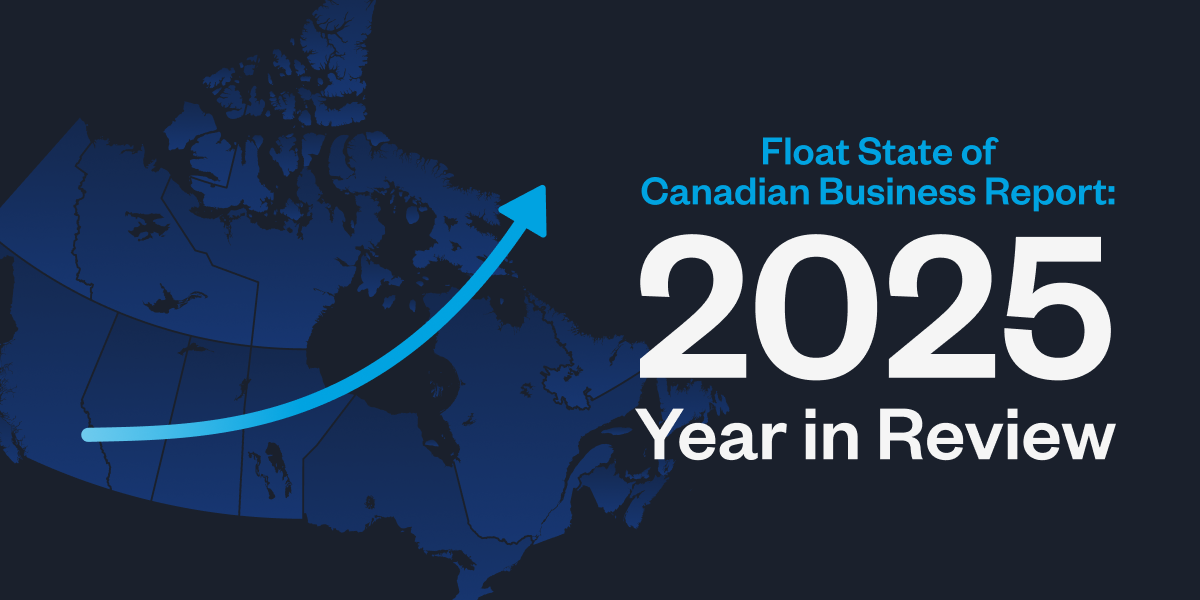In the news
How US Policy Shifts Could Affect Your Business
Canadian SMBs are preparing for changes in US trade policy that could drive uncertainty in 2025. Is your business ready for potential US trade shifts?
November 14, 2024

With the election results being finalized last week and a new US administration on the horizon, we wouldn’t be surprised if you and other small and medium-sized businesses (SMBs) are wondering what this change means for the Canadian economy. Looking back, the optimism Canadian SMBs have shown in recent years is impressive—87% of SMBs feel confident about their current performance, with half expecting year-over-year profit growth (Float’s Q3 2024 SMB Survey). However, as the US remains Canada’s largest trading partner, the rapidly changing international environment could test that confidence. You may need to navigate the impacts of new US policies, tariffs, and potential disruptions in cross-border trade. Experts are suggesting that Canadian SMBs proactively prepare for potential shifts ahead. Read on to find out what you can expect in the coming year.
Rising Costs and Financial Strain
One of the most immediate changes to watch for is a potential increase in tariffs on US imports. If your business relies on affordable access to US goods & services, this could add significant pressure to your bottom line. This accents an already existing challenge for Canadian small businesses who list high operating costs as the #1 challenge that they face today (Float’s Q3 2024 SMB Survey). Now could be the time to consider alternative ways to drive down your operating expenses by exploring new suppliers, finding efficiencies in processes, or planning in advance to help soften the impact of any upcoming policy changes.
Access to Capital and Credit in 2025
Another area to keep an eye on is borrowing conditions. Changes in US fiscal policy could lead to rising interest rates in Canada (sound familiar?), affecting your ability to secure affordable financing or impacting current credit that is dependent on variable rates. This may be especially challenging if your business is relatively new, as 70% of new SMBs report difficulty accessing capital, with over half struggling with insufficient cash flow (Float’s Q3 2024 SMB Survey). Tighter credit conditions could make it tougher to fund your growth, expansion, or other critical areas of your business in the coming year.
Revenue Stability and Growth: Preparing for Potential Trade Disruptions
If your business relies on exports, you could face some added uncertainty in the coming years as the incoming administration looks to revisit historic trade agreements in North America (Canada, US, Mexico). For SMBs that depend on cross-border sales, any revisions to trade terms could end up impacting your revenue streams. In our latest survey, we learned that many SMBs remain optimistic about the future, with over 60% feeling positive about growth and 50% expecting profit gains in 2024 (Float’s Q3 2024 SMB Survey). The recent changes don’t have to dampen this. To fuel this optimism, it’s essential to stay informed about trade policy changes and think about ways to diversify your sales or business. This could mean starting to explore new product lines or experimenting with different local target markets before there is increased pressure to do so.
Inflation and Cash Flow Visibility: Keeping Operations Steady
Trade policy shifts can also lead to currency fluctuations, which may weaken the Canadian dollar and, in turn, increase the cost of US goods and services for Canadians. If your business already faces challenges with inconsistent revenue and cash flow, inflation could add more complexity. Improving your cash flow visibility and predictability can be crucial here. Many SMBs report challenges with this—43% say disconnected financial tools hinder their cash flow visibility (Float’s Q3 2024 SMB Survey). Financial reporting and forecasting tools can be key to navigating rising costs while keeping your operations steady.
Financial Processes and Integration: Streamlining for Resilience
Efficient financial processes are always important, but they’re even more critical in times of economic change. If you’re one of the 55% of SMBs whose financial tools don’t integrate well, or if you find reporting cumbersome, streamlining these processes could help you respond faster to market dynamics (Float’s Q3 2024 SMB Survey). Strong financial practices can help you stay competitive as the economic environment shifts. As conditions change, a proactive approach to financial management can help you maintain growth and resilience. By optimizing your financial processes, exploring alternative funding sources, and diversifying your revenue, your business can stay adaptable and well-positioned for whatever 2025 may bring.
If you’re interested in learning more about how Canadian SMBs like yours are forging ahead through uncertainty, check out our SMB Survey results below.
Written by
All the resources

Industry Insights
Canada’s Crossroads: Why Now is the Moment to Move from Defensive to Intentional Growth
Float's 2025 report on Canadian business shows modest growth, rising costs and shrinking reserves. Find out exactly what the data
Read More
Expense Management
Controller Month-End Close Automation: Streamline Financial Reporting
Controllers, this one's for you. Let's talk about how how automating month-end close helps you move faster without sacrificing accuracy.
Read More
Corporate Cards
Corporate Card Program Implementation: Complete Management Guide
Ready to implement a corporate card program? This is where to start.
Read More




